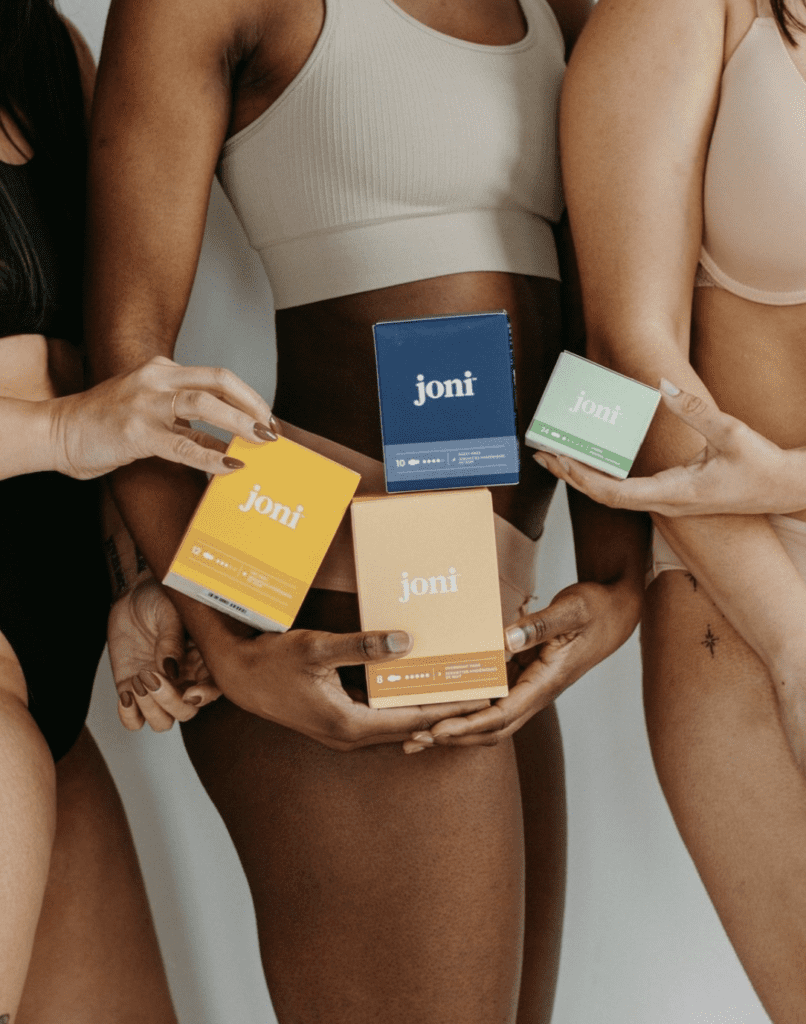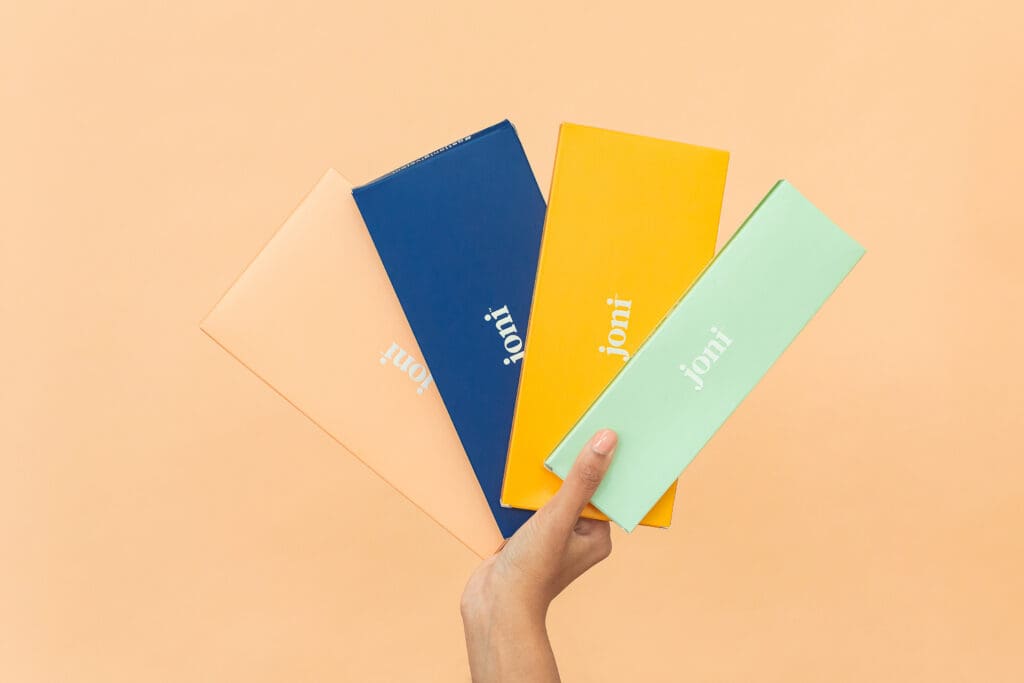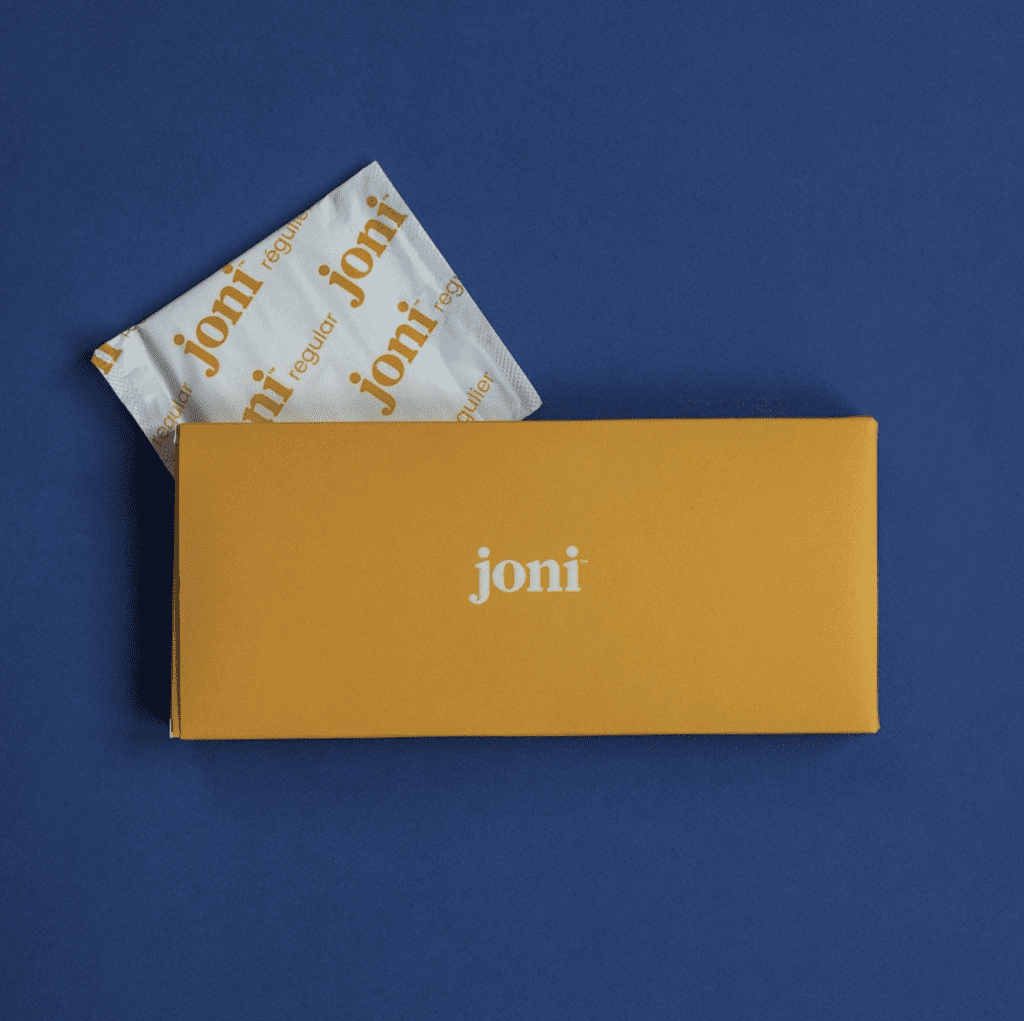B.C.-based sustainable and accessible period care and smart commercial period dispensers brand joni is issuing a call for entries for its upcoming Book on Periods – an anthology of real periods stories from real people in Canada and the U.S. who menstruate to end period silence. Why? Because joni believes that talking about periods and sharing our stories is a powerful way to empower people who menstruate. Because joni believes that keeping these stories private is what makes menstruation dirty, shameful and unseen and – when that happens, people who menstruate suffer (one in three menstruators under 25 live in period poverty). And because joni believes that sharing real period stories enables each of us to learn from each other, removes the shame associated with menstrual cycles and normalizes conversations, awareness and education around periods. We chatted with co-founder Linda Biggs to learn more. —Vita Daily
What inspired joni to create an anthology of real period stories, and how do you envision it contributing to ending period silence?
joni has always been about showing what is possible when periods are normalized and menstrual cycles are celebrated instead of shamed. What better way to kick-off a conversation than to document our real period stories in a beautiful coffee table book that sparks discussions in unconventional places. There is power in our stories and we want to share that.
Can you share any personal stories or experiences that have shaped your passion for driving change in the outdated and wasteful “feminine hygiene” industry?
There are a few – from waiting in Food Bank lines as a young girl with my mother hoping to get a few tampons so that I could attend my swim practices to desperately searching for period care products at an airport in Canada on my way back from a family trip late one night because my oldest daughter got her period for the first time. But recently, and this one is very personal and something I’m still working through, is my experience with perimenopause and the impacts it’s had on my mental health and life. I had to do a lot of my own research to find another anecdotal story online that matched my experience. And through that, I was able to advocate for my health with my doctor. Our stories are important – we learn from each other and feel seen when we see our stories in writing.
How do you think the “Book on Periods” can help reduce stigma and open up conversations around menstruation, especially for younger generations?
I’m so hopeful for younger generations who are already teaching us how unapologetic we should be about a normal bodily function. There are so many influences to menstrual stigma that impact us – from family life, cultural stigmas, socioeconomic factors and more. The first time red liquid was shown in a television period care ad was 2020 and it made headlines. While we’ve come a long way, we’ve got a long way to go. The joni Book on Periods is one step forward and the first of its kind – which is wild considering that over 30% of the population menstruates. We’re not writing a “how to” book or an “anatomy 101” book – those exist. We’re writing our collective stories because, to-date, they have never been acknowledged, printed and shared.
With the profits from the book going towards free period care for non-profits and schools, what impact do you hope to see in the fight against period poverty?
While there has been progress in the menstrual equity space in BC and across Canada, we’re still hearing many stories of people having to choose between period care and food. As a society we can’t imagine having to carry around rolls of toilet paper or otherwise go without if you are caught off guard – we feel the same way about period care. While joni already works with hundreds of organizations who have committed to creating equitable spaces with our freevend period care dispensers, we’re keen to work with our non-profit partners to ensure that more spaces have accessible period care. We believe period equity in Canada is possible in the next five years when organizations, non-profits and governments work together to build long-term solutions.
As someone advocating for sustainable and accessible period care, what are your thoughts on how education and innovation can help reshape societal attitudes toward menstruation?
We’ve always believed that the way to drive an industry forward is to create sustainable and accessible products and, to do that, we need to innovate. The status quo is just not going to move the needle so one of our values is “different on purpose” – from being transparent with our ingredients to our 5% giveback, it’s part of our ethos. We’ve worked with dozens of non-profit partners including The Period Purse, Moontime Connections and United Way to help drive accessibility and education forward. Yet, government also plays a role in reshaping societal attitudes as well. Policy changes and budget commitments that support women’s health, education and menstrual equity initiatives – which we are advocating for with our industry partners in Ottawa – are vital in building the ecosystem of accessible period care that will make menstrual equity possible in Canada and break down the stigmas around menstruation.
Visit http://joniperiodbook.com/ to enter your own period story about first periods, last periods, period sex, PCOS, endometriosis, menopause, gender, race and every bloody thing in-between by October 15, 2024.




Be the first to comment